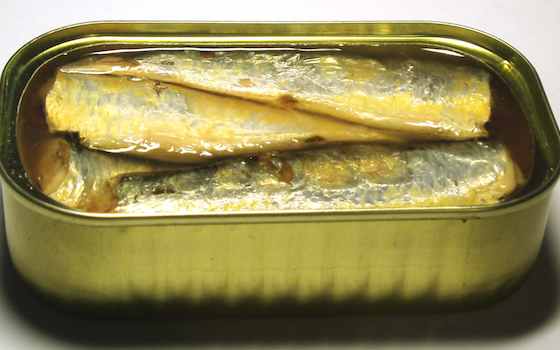- MENU
- HOME
- SEARCH
- WORLD
- MAIN
- AFRICA
- ASIA
- BALKANS
- EUROPE
- LATIN AMERICA
- MIDDLE EAST
- United Kingdom
- United States
- Argentina
- Australia
- Austria
- Benelux
- Brazil
- Canada
- China
- France
- Germany
- Greece
- Hungary
- India
- Indonesia
- Ireland
- Israel
- Italy
- Japan
- Korea
- Mexico
- New Zealand
- Pakistan
- Philippines
- Poland
- Russia
- South Africa
- Spain
- Taiwan
- Turkey
- USA
- BUSINESS
- WEALTH
- STOCKS
- TECH
- HEALTH
- LIFESTYLE
- ENTERTAINMENT
- SPORTS
- RSS
- iHaveNet.com: Health Ailments

5 Foods to Help Fight Inflammation
by Marsha McCulloch, MS, RD
Inflammation is a term that's commonly used but poorly grasped. "Think of inflammation as irritating chemicals that are released by your immune cells, producing swelling, redness and pain," says
Although several lifestyle factors contribute to inflammation, diet is important to help keep it in check and reduce disease risk. Specific foods can directly or indirectly supply anti-inflammatory compounds, as well as help balance the immune system and moderate insulin levels. Here are five inflammation-reducing diet strategies:
1. Omega-3 fats
"The fats you eat are converted into substances called prostaglandins, and different types of prostaglandins either increase or decrease inflammation in your body," Blum says. "Consuming foods rich in omega-3 fats leads to decreased production of inflammatory prostaglandins." The most abundant source of omega-3s is oily fish, such as wild-caught salmon and canned sardines. Walnuts, flaxseed, eggs from hens given omega-3 rich feed, and grass-fed meats provide smaller amounts of omega-3 fats.
2. Slow-digested carbs
Opting for foods that produce a more gradual rise in blood sugar (low-glycemic load foods), such as lentils, berries and other high-fiber foods may help reduce inflammation, especially in people carrying extra pounds. A well-controlled study in the February 2012 issue of
3. Antioxidant-rich foods
"Every day your body produces free radicals, which can damage body tissue and trigger inflammation," Blum says. The antidote? Antioxidants. "Antioxidants are sort of like sponges, which mop up free radicals in the bloodstream and help quiet the immune system." Antioxidants are especially abundant in fruits and vegetables with rich hues, such as berries, broccoli, and dark leafy greens, as well as less-than-colorful garlic and onions. Extra virgin olive oil and nuts are also rich in antioxidants.
4. Probiotic foods and supplements
Beneficial bacteria (probiotics) can help reduce inflammation in the gut, as well as in other parts of the body, according to a July/August 2013 study in Gut Microbes. In the study, 70 percent of the adults with inflammatory diseases, including psoriasis, chronic fatigue syndrome, and ulcerative colitis, who were given a probiotic Bifidobacteria infantis supplement for six to eight weeks, had a significant reduction in inflammatory markers, compared with only 9 percent of adults given a placebo. "Fermented foods such as yogurt, kefir and kombucha tea all supply probiotics, but if you've been diagnosed with an inflammatory disease, probiotic supplements are recommended," Blum says. She also encourages consuming prebiotics, which are indigestible fibers that act as "fertilizer" to help the good bacteria grow. Prebiotics, such as inulin, which are added to some probiotic supplements, are found in foods such as garlic, onions and asparagus.
5. Spices and herbs
Many studies have shown herbs and spices have significant anti-inflammatory as well as antioxidant activity. A 2012 laboratory study in Oxidative Medicine and Cellular Longevity found that amounts of rosemary, sage and thyme typically used in cooking retain significant anti-inflammatory activity after heating and digestion. Other spices well known for their anti-inflammatory compounds include cayenne pepper, cinnamon, clove, ginger, nutmeg, oregano and turmeric, among others.
What foods fuel inflammation?
Limit your intake of these inflammatory culprits:
-- Fried and charred food, which are high in advancted glycation end products
-- Refined sugars and grains, and other highly processed foods and fast foods
-- Excesses of omega-6 fats, prevalent in refined vegetable oils, such as corn and soy
-- particular food sensitivities -- particular to the individual -- that may trigger immune based reactions
-- Partially hydrogenated oils/trans fats, such as those found in some stick margarines and fried foods
Article: Copyright ©, Chatham House Distributed by Tribune Content Agency, LLC
"5 Foods to Help Fight Inflammation"